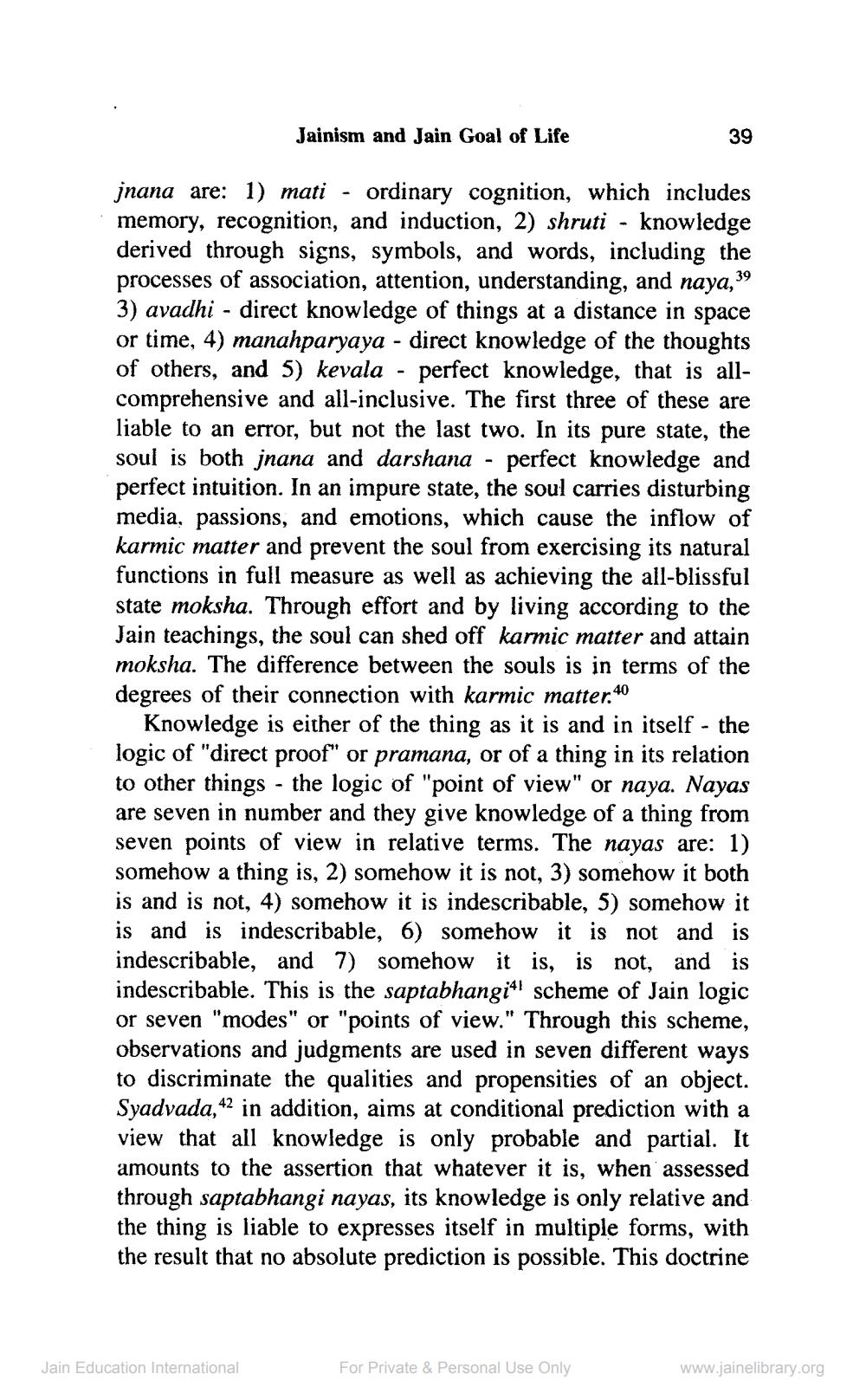________________
Jainism and Jain Goal of Life
39
jnana are: 1) mati - ordinary cognition, which includes memory, recognition, and induction, 2) shruti - knowledge derived through signs, symbols, and words, including the processes of association, attention, understanding, and naya, 39 3) avadhi - direct knowledge of things at a distance in space or time, 4) manahparyaya - direct knowledge of the thoughts of others, and 5) kevala - perfect knowledge, that is allcomprehensive and all-inclusive. The first three of these are liable to an error, but not the last two. In its pure state, the soul is both jnana and darshana - perfect knowledge and perfect intuition. In an impure state, the soul carries disturbing media, passions, and emotions, which cause the inflow of karmic matter and prevent the soul from exercising its natural functions in full measure as well as achieving the all-blissful state moksha. Through effort and by living according to the Jain teachings, the soul can shed off karmic matter and attain moksha. The difference between the souls is in terms of the degrees of their connection with karmic matter. 40
Knowledge is either of the thing as it is and in itself - the logic of "direct proof" or pramana, or of a thing in its relation to other things - the logic of "point of view" or naya. Nayas are seven in number and they give knowledge of a thing from seven points of view in relative terms. The nayas are: 1) somehow a thing is, 2) somehow it is not, 3) somehow it both is and is not, 4) somehow it is indescribable, 5) somehow it is and is indescribable, 6) somehow it is not and is indescribable, and 7) somehow it is, is not, and is indescribable. This is the saptabhangi4l scheme of Jain logic or seven "modes" or "points of view." Through this scheme, observations and judgments are used in seven different ways to discriminate the qualities and propensities of an obiect. Syadvada,42 in addition, aims at conditional prediction with a view that all knowledge is only probable and partial. It amounts to the assertion that whatever it is, when assessed through saptabhangi nayas, its knowledge is only relative and the thing is liable to expresses itself in multiple forms, with the result that no absolute prediction is possible. This doctrine
Jain Education International
For Private & Personal Use Only
www.jainelibrary.org




